When Sharing Turns Into Oversharing
Ever blurt out your deepest secrets to a near-stranger at a party, only to wake up the next morning with that gut-wrenching “why did I say that?” feeling? Yeah, I’ve been there once at a coffee shop, I dumped my whole breakup story on the barista just because she asked how my day was. It felt freeing in the moment, but later? Pure cringe. Oversharing sneaks up like that: it’s when you cross the line from honest chat to unloading too much too soon, often leaving you exposed and second-guessing everything.

This guide shines a light on that hidden pull toward telling it all, exploring the anxiety lurking underneath and how it tricks your brain into thinking more words mean more connection. We’ll kick off with what oversharing really looks like (and how it’s not the same as being open), dive into the nervous system rollercoaster it triggers, spot the sneaky signs you’re doing it, and dig into the root psychology like anxiety or past hurts that keeps the cycle going. Stick around; by the end, you’ll have tools to share smarter without the hangover.
Curious about emotional intensity? Check out our piece on why your emotions feel too much for more on riding those waves. And for a deeper science dive, here’s a solid read from Psychology Today on the dangers of oversharing.
One cool thing we’ll hit? A quick self-check quiz to see if you’re tipping into overshare territory. Plus, here’s a prompt for an infographic: “Create a vibrant, cartoon-style infographic showing a flowchart of the oversharing cycle from anxious trigger to relief to regret with quirky icons like a chat bubble exploding, a lightbulb for the ‘aha’ moment, and a shield for healthy boundaries; keep it fun and relatable for detecting patterns early, no treatment steps.”
Quick snapshot: why oversharing feels good then stings
Picture this: you’re nervous in a new group, so you start chatting away, dropping personal stories like confetti. Boom instant relief, like you’ve bonded super fast. But hours later, that high crashes into shame, your mind replaying every word. “Did they think I was weird?” It’s that dopamine hit from connection mixed with the slow burn of exposure.
I remember oversharing about my anxiety in a job interview once; felt authentic at first, but then I obsessed over it for days, wondering if it cost me the gig. Oversharing promises quick closeness, but often delivers isolation instead kinda like eating junk food for comfort, only to feel worse after. 😩
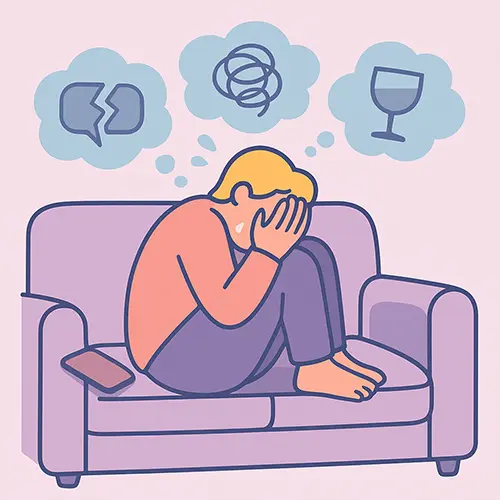
Who this guide is for (anxious talkers, fast-intimacy seekers, over-explainers)
If you’re the type who fills awkward silences with your life story, or you crave that instant “we’re close now” vibe but end up regretting it, this is your spot. Anxious talkers, you know the ones who ramble when nerves kick in, turning a simple “how are you?” into a therapy session. Fast-intimacy seekers? Yeah, those chasing deep bonds right off the bat, often from a place of loneliness or fear of being misunderstood. And over-explainers, always adding extra details to “make sure” people get you, even when it’s not needed.
Heck, if you’re in the LGBT+ community, oversharing might hit different like sharing identity struggles too soon for validation, only to feel vulnerable in unsafe spaces. I’ve chatted with friends who do this during dates, spilling past traumas to test waters, but it backfires. This guide’s for anyone tired of that cycle, ready to share on your terms.
It’s not about shutting down; it’s about protecting your energy. One time, I over-explained my whole childhood to a new coworker, thinking it’d build trust turns out, it just made things awkward. Sound familiar? Let’s flip that script.
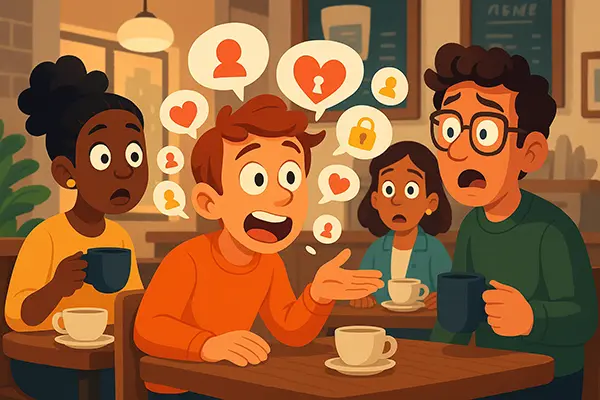
What Exactly Is Oversharing? (Definition & Scope)
Oversharing’s that sneaky habit where you divulge personal deets think finances, health woes, or relationship drama way before the relationship’s ready for it. It’s not just chatting; it’s unloading without checking if the other person’s up for carrying that weight. I once told a date about my therapy sessions on night one, thinking it was “honest,” but really, it was me seeking reassurance too fast. Feels good momentarily, like lifting a burden, but often leaves you exposed.
From what I’ve read on Verywell Mind, it’s tied to impulsivity or anxiety, not a flaw but a pattern worth tweaking.
Working definition vs. healthy self-disclosure
So, oversharing: sharing intimate info impulsively, often without consent or context, leading to regret. Healthy self-disclosure? That’s gradual, mutual sharing that builds trust over time like revealing a hobby first, not your deepest fears. The key diff? Intent and timing. Healthy stuff feels connecting; oversharing feels like a dump. In my college days, I’d disclose family issues to friends too soon, mistaking it for bonding, but it pushed some away. Balance is everything share to connect, not to offload.
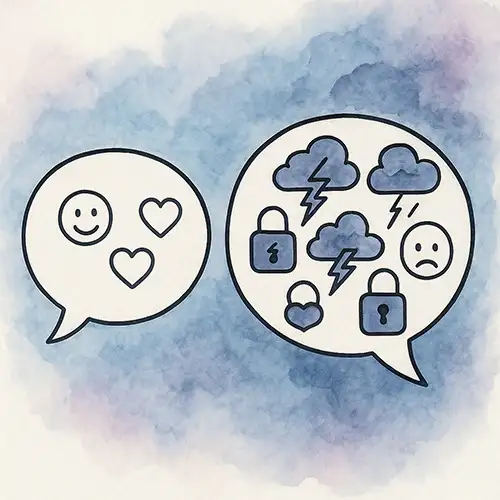
“Oversharing syndrome”? – diagnostic myths & reality
Nah, “oversharing syndrome” isn’t a real diagnosis it’s more a catchy term for patterns linked to anxiety or ADHD. No DSM entry here; it’s behavioral, not clinical. But myths abound, like it’s always attention-seeking (spoiler: often it’s anxiety-driven). Reality? It can stem from deeper stuff, but labeling it a “syndrome” oversimplifies. If it’s disrupting life, chat with a pro, but don’t self-diagnose. I thought I had some “syndrome” once, but turns out it was just stress amping my chatter.
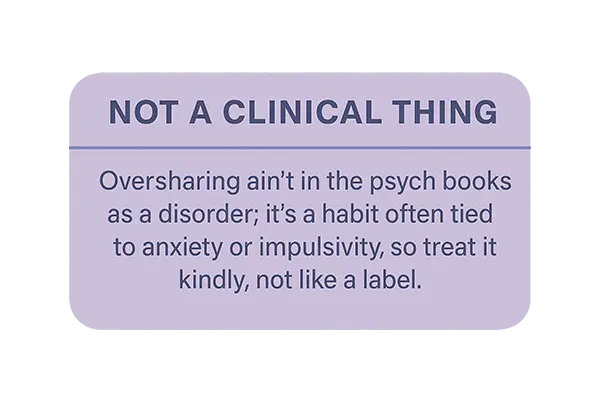
Not a Clinical Thing: Oversharing ain’t in the psych books as a disorder it’s a habit often tied to anxiety or impulsivity, so treat it kindly, not like a label.
Oversharing vs. Transparency vs. Honesty vs. Trauma-Dumping
Transparency’s about being open without filters, but in a balanced way like admitting a mistake at work. Honesty? Straight-up truth-telling, no extras. Oversharing adds unnecessary depth too soon. Trauma-dumping? That’s unloading heavy past pains without warning, often one-sided. All can overlap, but intent matters: honesty builds, oversharing burdens.
For more on emotional dumps, see Psych Central on trauma dumping.
Comparison Table: Oversharing vs. Authentic Vulnerability vs. Venting vs. Trauma Dumping vs. Transparency
| Aspect | Oversharing | Authentic Vulnerability | Venting | Trauma Dumping | Transparency |
|---|---|---|---|---|---|
| Definition | Spilling personal details too much/soon, often impulsively | Sharing weaknesses thoughtfully to connect | Releasing frustration briefly | Unloading trauma without consent | Being open and clear without hiding |
| Intent | Seek relief or approval | Build genuine bonds | Blow off steam | Offload pain, often repeatedly | Foster trust/clarity |
| Timing/Context | Inappropriate or early | Mutual, timed right | Short, with willing listener | Sudden, no boundaries | Relevant to situation |
| Impact on Listener | Overwhelmed or awkward | Inspired or closer | Relieved or empathetic | Burdened, triggered | Informed, respected |
| Aftermath for Sharer | Regret, shame | Growth, connection | Lighter mood | Temporary relief, cycle repeats | Confidence, alignment |
This table helped me sort my own habits venting’s fine with pals, but oversharing? Not so much in new meets. 😅
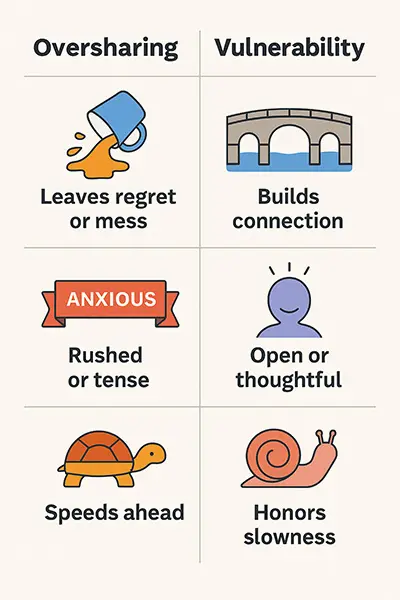
The Nervous System Behind Oversharing
Your body’s wired for this: anxiety spikes, fight-or-flight kicks in, and talking feels like safety. But it’s a trap the nervous system craves that quick fix, only to crash later. From hyperarousal to shame spirals, it’s all biology meets emotion.
Short-term relief loop (“now they know!”)
That rush when you overshare? It’s your brain dumping cortisol, feeling “seen” for a sec. Like, “Phew, now they get me!” But it’s fleeting kinda like scratching an itch that comes back worse. I get this in groups; nerves make me blab, and bam, instant calm. But science says it’s the sympathetic nervous system tricking you into false security.
Delayed shame & the vulnerability hangover
Ah, the hangover: that post-share fog of embarrassment, where your mind screams “too much!” It’s like emotional whiplash dopamine drop plus shame chemicals flooding in. One night, after oversharing with a friend about my insecurities, I couldn’t sleep, replaying it. Turns out, it’s the parasympathetic rebound, leaving you raw. Brené Brown nails it: “Vulnerability hangover is the price of daring greatly.”
🔸The vulnerability hangover usually hits 2-24 hours after, mixing regret with physical exhaustion like a real hangover, but for your soul.🔸
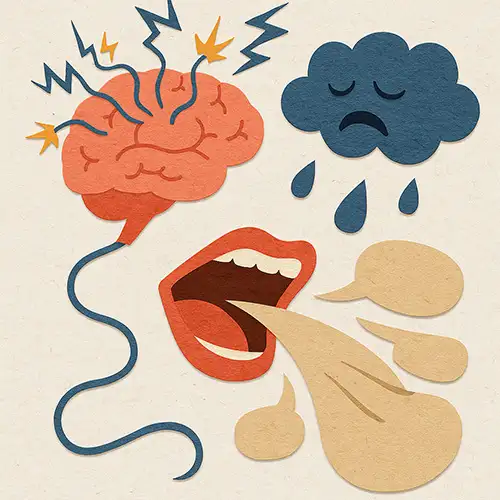
Hypervigilance replay: “Did I say too much?”
Post-overshare, your brain goes into scan mode, hypervigilant for rejection cues. “Did they pull away? Was that laugh fake?” It’s amygdala overdrive, wired from past hurts. For me, it’s endless rumination, like a bad movie on loop. If you’re queer, this might amp up from fear of judgment on identity stuff I’ve felt it after sharing coming-out stories too quick.
Flowchart: Anxiety → Overshare → Relief → Shame → Rumination → Avoidance
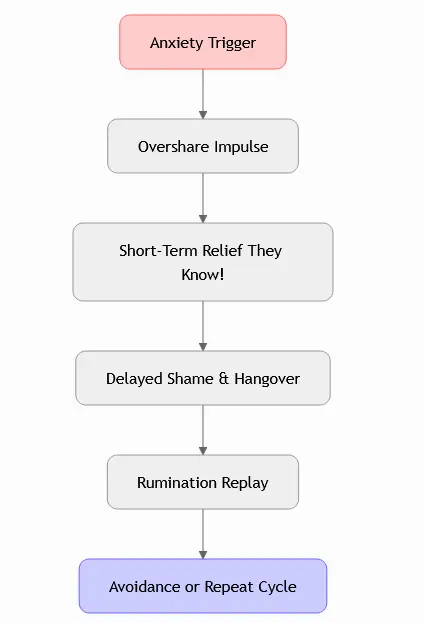
This flowchart maps the trap break it by pausing at B. Super helpful for visualizing why it loops.
Signs & Self-Check (Are You Oversharing?)
Spotting oversharing’s like catching a cold early nip it before it worsens. Core clues? Sharing deets that feel “off” for the context, or that nagging regret after.
Core signs you’re oversharing in early connections
In new chats, if you’re diving into heavy topics like exes or mental health without reciprocity, that’s a flag. Or if listeners shift uncomfortably eyes glazing, changing subjects. I notice I do this when lonely, turning casual talks into monologues. Other signs: feeling drained post-convo, or apologizing for “saying too much.”
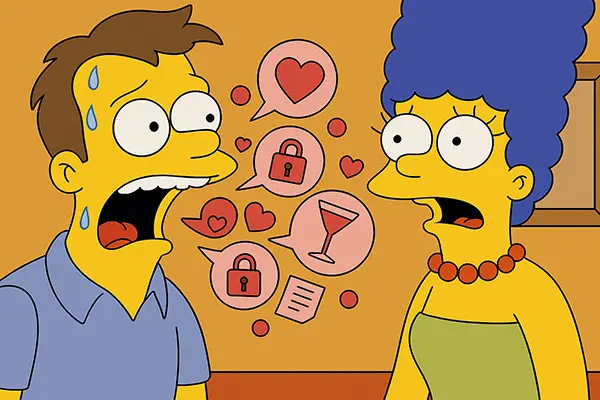
“When I’m nervous, I talk too much”: nervous talk vs. oversharing
Nervous talk’s filler chatter “weather’s wild, huh?” harmless rambling. Oversharing? Personal bombs like “my therapist says…” mid-small talk. The diff? Depth and vulnerability. Nerves fuel both, but oversharing exposes more. Once, at a networking event, my anxiety turned chit-chat into confessing job fears classic crossover.
Self-check questions: “Do they need this detail now?”
Pause and ask: Is this info building trust, or just my anxiety talking? Do they match my depth? Would I regret this tomorrow? Simple qs like these saved me from many cringes. Try ’em next time nerves hit.
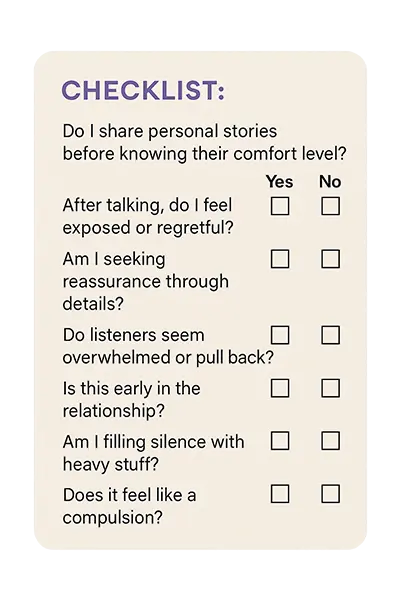
🟨 Checklist card: 7 yes/no prompts for quick self-screen
- Do I share personal stories before knowing their comfort level? Yes/No
- After talking, do I feel exposed or regretful? Yes/No
- Am I seeking reassurance through details? Yes/No
- Do listeners seem overwhelmed or pull back? Yes/No
- Is this early in the relationship? Yes/No
- Am I filling silence with heavy stuff? Yes/No
- Does it feel like a compulsion? Yes/No
Score 4+ yes? Might be oversharing territory time to reflect. Try journaling these after convos for patterns.
Triggers that push you to over-explain (misunderstood, loneliness, reassurance-seeking)
Loneliness screams “connect now!” pushing overshares for quick bonds. Feeling misunderstood? You over-explain to “fix” it. Reassurance-seeking’s big too spilling to hear “it’s okay.” For LGBT+ folks, triggers might include invalidation fears, leading to fast identity shares. I over-explain when tired, words tumbling out like a faulty faucet. Spot your triggers; it’s half the battle.
Root Causes & Psychology (Why It Happens)
Digging deep: oversharing’s not random it’s rooted in psych stuff like anxiety or wiring from childhood.
Anxiety & rejection sensitivity (people-pleasing, approval bids)
Anxiety amps rejection fears, so you overshare as a “please like me” bid people-pleasing in overdrive. It’s like preempting judgment by laying it all out. Sensitive to rejection? Every silence feels like disapproval, cue the word flood. I do this when insecure, dumping deets for approval. Harley Therapy links it to deeper emotional needs.

Trauma patterns: fast-track intimacy for safety → paradoxical exposure
Trauma whispers “get close quick” for safety, but it exposes you more. Like, sharing fast to test loyalty, only to feel vulnerable. It’s paradoxical seeking safety through risk. From childhood neglect, maybe? One survivor pal overshares to “weed out” bad folks, but it backfires. Psychologs ties it to unresolved pain.
ADHD & impulsive disclosure (“ADHD oversharing”)
ADHD’s impulsivity means blurting without filters “oversharing ADHD” style. Brain’s executive function glitches, so thoughts spill unchecked. Combined with hyperfocus on convos, it’s a recipe for TMI. ADDitude calls it RSD-fueled shame cycle. If you’ve got ADHD, like a buddy of mine, small talk turns epic fast.
OCD-style reassurance & mental compulsions (“Is oversharing OCD?”)
Not always OCD, but compulsions can mimic it reassurance-seeking via overshares, then ruminating. “Did I say too much?” loops like mental checking. Treat My OCD notes it’s anxiety overlap, not core OCD. If obsessions drive it, therapy helps.
Personality factors & insecure attachment (“Do insecure people overshare?”)
Insecure attachment? Absolutely anxious styles crave closeness, leading to fast disclosures. Avoidant? Less so, but when they do, it’s floodgates. Attachment Project links anxious attachment to oversharing for validation. Insecure folks often do, from fear of abandonment.
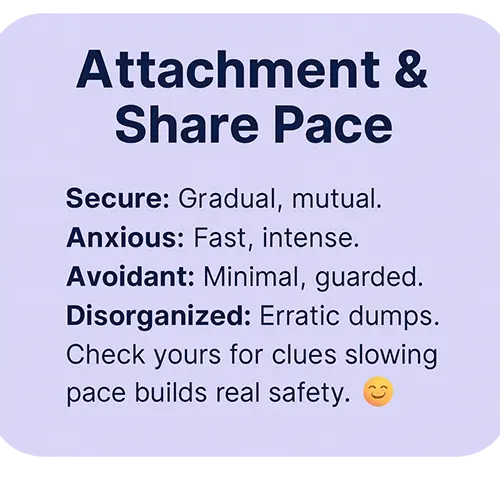
Attachment & Share Pace: Secure: Gradual, mutual. Anxious: Fast, intense. Avoidant: Minimal, guarded. Disorganized: Erratic dumps. Check yours for clues slowing pace builds real safety. 😊
Related Problems & Differential (Don’t Mix Them Up)
Okay, so you’ve got this oversharing thing down as a pattern, but it’s super easy to mix it up with other stuff that’s kinda similar but not quite the same. Like, I’ve caught myself thinking I’m just confiding in a pal when really I’m dumping way more than needed, all because anxiety’s pulling the strings. Let’s break this apart so you can spot the differences and not beat yourself up over the wrong thing.
This section’s all about clearing up those blurry lines, drawing from what psych folks say on sites like Quora’s take on oversharing psych or Forbes on authenticity vs overshare. And hey, if you’re dealing with rumination spirals, check our piece on mental self-care guide for some overlap tips.
It’s not always black and white, right? Sometimes what feels like healthy venting turns into a full-blown anxiety soothe session without you noticing. I remember once at a family dinner, I thought I was clarifying my point about a work issue, but nope, it was me over-explaining to dodge any misjudgment, leaving everyone glazed over. 😅 Let’s dive in.

Oversharing vs. confiding for support
Confiding’s that warm spot where you share with someone trusted to get real support, like telling your bestie about a rough day and actually feeling lighter because they’re there for it. Oversharing? That’s when you blurt it all to someone who ain’t ready or asked, often chasing that quick relief from anxiety rather than true connection.
From what I’ve seen in chats with friends, confiding builds bonds slowly, while oversharing can leave you exposed and them overwhelmed. Think about it: one time I confided in my therapist about family stuff, felt held; but dumping it on a coworker? Cringe city. The psych angle here, per Psychology Today on oversharing dangers, is that oversharing often stems from unmet needs, not mutual trust like confiding does.
Confiding usually happens in safe spaces, with reciprocity they share back. Oversharing’s more one-sided, driven by that inner push to “get it out” before thinking if it’s the right spot. If you’re in the LGBT+ crowd, this might hit different; oversharing identity struggles for support can feel necessary, but confiding in affirming circles is key to avoid that hangover vibe. Either way, ask yourself: Am I seeking help or just unloading? Pause and check the relationship level first.
Over-explaining vs. clarifying expectations
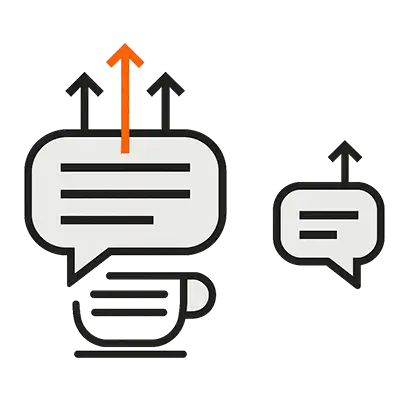
Over-explaining’s like when anxiety makes you pile on details to “make sure” no one’s misunderstanding you, but it just muddies the water more. Clarifying? That’s straightforward, like saying “Hey, I meant this, not that” without the essay.
I do this a lot in emails start with a simple point, then boom, paragraphs of justification because I’m scared of rejection. Turns out, per Tevapharm on conquering over-explaining, it’s often a trauma response, fawning to avoid conflict.
Clarifying keeps things light and direct, building understanding without the emotional dump. Over-explaining drains everyone, including you, and can signal deeper insecurity. For example, in therapy sessions I’ve had, clarifying a feeling helps move forward; over-explaining loops me back into shame. If you’re queer and navigating expectations in relationships, over-explaining boundaries might stem from past invalidation try clarifying with short phrases instead. Short sentences work wonders here.
Rumination after talks vs. social anxiety spirals
Rumination’s that stuck-in-your-head replay of convos, picking apart every word like “Did I say too much?” it’s focused but exhausting. Social anxiety spirals? That’s when it snowballs into full panic about future interactions, like avoiding people altogether because one chat went wonky. From my own late-night mind marathons, rumination feels internal, chewing on the past; spirals amp up with what-ifs, per PositivePsychology on urge surfing bad habits kinda vibes for breaking cycles.
Both suck, but rumination might tie to OCD-ish patterns, while spirals scream social phobia. I recall after a group hang, ruminating on my overshare kept me up, but the spiral hit when I started dreading the next meetup. Check OCD & Anxiety Center on rumination for more. If rumination’s your jam post-overshare, ground with breath; spirals need broader tools like exposure. Either way, they’re anxiety cousins, not twins.
Decision tree: “What am I doing right now sharing or soothing anxiety?”
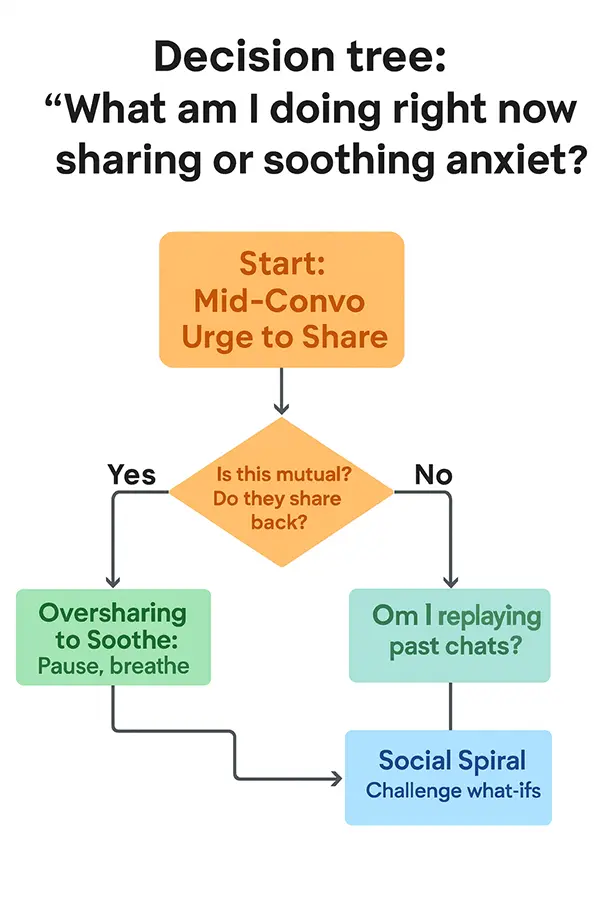
This tree helps sort it quick use it mentally next time words wanna flood out. Inspired by Bupa’s worry tree for anxiety decisions.
Step-by-Step Change Plan (Rewire the Pattern)
Alright, now we’re getting to the good stuff how to actually shift this oversharing habit without feeling like you’re clamping down on your true self. It’s like rewiring an old lamp; takes patience, but suddenly things light up better. Based on steps from Harley Therapy on oversharing syndrome and my own trial-and-error, this plan’s about validating first, then building skills. I tried it after a bad date where I spilled my life story started small, and it stuck. For more on emotional roots, peek at our knowing yourself post. Let’s walk through the steps, one at a time.
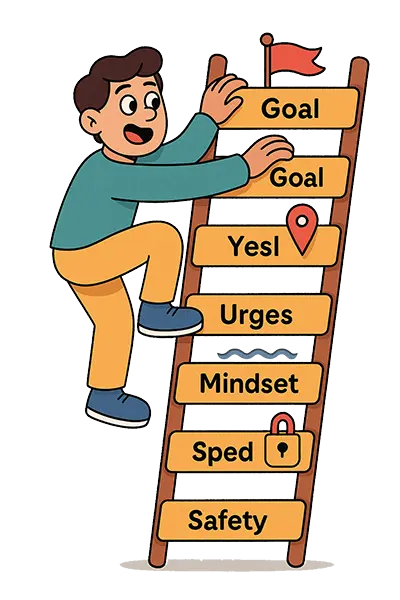
Step 1 – Validate the protector: “Oversharing tried to keep me safe.”
First off, don’t bash yourself oversharing was your brain’s way of protecting you from rejection or isolation, like a quirky bodyguard. Acknowledge it: “Hey, thanks for trying, but I got this now.” This softens the shame, per BetterUp on oversharing signs. I journaled this after a group share gone wrong, felt less like a failure. It’s neuroscience too validating calms the amygdala, reducing fight-or-flight. Start here; it’s the foundation.
Step 2 – Build pause tolerance (micro-silences & curiosity)
Next, practice tiny pauses in talks like count to three before responding. It builds tolerance for that awkward quiet, turning it into curiosity about what they say. I used to fill every gap with words, but pausing let me breathe and listen. Try in low-stakes chats, like with a barista. This rewires the urge, making silence your friend. 😊 From New U Therapy on breaking overshare, it’s about interrupting the auto-pilot.
Step 3 – Notice urges to over-explain (urge surfing + one-sentence rule)
Spot that itch to add more details? That’s the urge surf it like a wave, watch it rise and fall without acting. Pair with the one-sentence rule: limit explanations to just that. Surfing comes from addiction recovery but works here, per Therapist Aid on urge surfing. I surfed during a work call once, stuck to one line felt empowering, no regret after.

Step 4 – Anchor safety (breath, posture, gaze, tempo)
Ground yourself mid-urge: deep breath, straighten posture, soft gaze, slow your speech tempo. These body hacks signal safety to your nervous system, cutting the anxiety fuel. I anchor with belly breaths in convos; it slows everything down. Hooked to PositivePsychology on emotional pacing? Wait, that’s urge stuff, but similar body first calms mind.
Step 5 – Share in layers (earned access over time)
Think onion layers: start light (hobbies), then personal (opinions), save private for later when trust’s earned. This paces intimacy, avoiding dumps. In dating, I layered after rushing before built real bonds. Ties to Bridgehaven on intensity vs intimacy. For LGBT+ folks, layering identity shares protects from judgment.
Step 6 – Reframe discomfort as growth (emotional pacing)
That uneasy feeling post-pause? Reframe it as growth, like muscle sore after a workout. Emotional pacing means matching share depth to relationship stage. I reframed after a friend chat discomfort meant I was pacing better. Per Laurel Therapy on dating pacing, it’s key for lasting connections
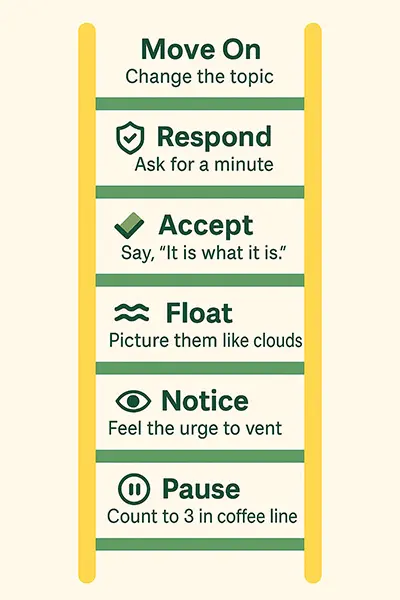
Tools & Practical Exercises
Tools time! These are hands-on bits to practice the plan, like a toolkit for your brain. From scripts to journals, they’re simple but pack a punch. I grabbed ideas from Science of People on stop oversharing and tweaked ’em. If self-awareness’s your jam, link to our self-awareness growth piece. Let’s gear up.
The 3-Layer Script: Light → Personal → Private (graduated disclosure)
Script your shares: Light (weather, fun facts), Personal (hobbies, light opinions), Private (deep feels, traumas). Graduate based on trust. Example: Date night start light with “Love hiking,” move personal “It clears my head,” save private for later. From PositivePsychology on self-disclosure, it’s therapy-rooted for safe opening.
The “Need-to-Know” filter: What’s the purpose of this detail?
Before spilling, ask: Does this detail serve a purpose, or is it anxiety talking? Filter out extras. I use it in meetings cuts fluff, feels pro. Helps avoid over-explain, per Uncagged Bird on control tactics.
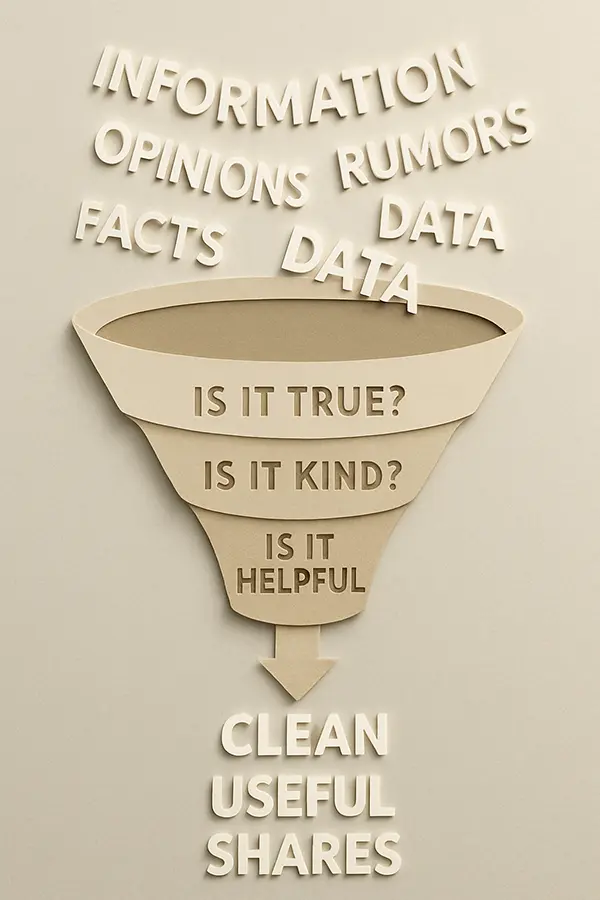
Boundary phrases: “I’ll share more once we know each other better.”
Stock phrases set limits gently: “That’s a bit personal for now,” or “I’ll dive deeper later.” Use ’em to redirect. In work chats, “Let’s stick to the project” works. From Forbes on boundaries with oversharers, they’re gold for balance.
After-conversation reset: de-rumination routine (body + mind)
Post-chat, reset: Body (walk, stretch), mind (journal wins, not fails). Breaks rumination, per Healthline on stop ruminating. I do a quick walk after socials clears the head fog.
🟨 Printable card: 12 boundary phrases for dates, work, family
Print this card laminate if fancy. 😜
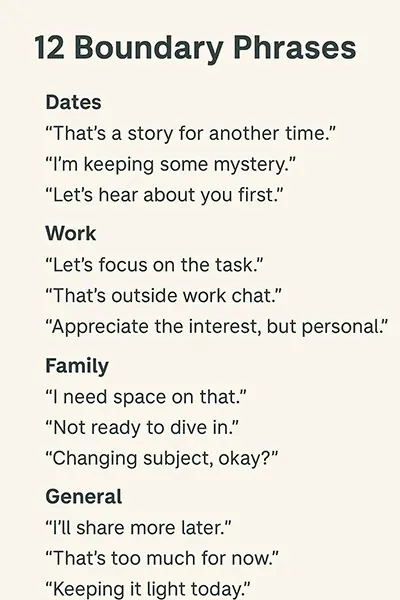
Social pacing journal: track context, urge level, and outcome
Journal post-interaction: Context (who, where), urge level (1-10), what you shared, outcome (regret? relief?). Spots patterns. Prompts: “What triggered the urge?” “How’d pausing feel?” Inspired by Dayoneapp on managing rumination and Root & Rise journal prompts.
Worksheet mockup: 1-page journaling grid
| Date/Context | Urge Level (1-10) | What I Shared | Outcome/Feels | Next Time Tweak |
|---|---|---|---|---|
| Ex: 8/27, Coffee w/friend | 7 | Light hobby, no private | Relief, no regret | Pause longer |
Fill rows daily track progress over weeks.
Repair & Recovery (If You Overshared)
Slipped up? No biggie it happens. Recovery’s about grace, not groveling. Let’s cover when to apologize, scripts, and timing, pulling from Grit & Virtue on oversharing trauma. For hangover vibes, our emotional healing post has more. You got this.
Should you apologize? When yes / when no
Apologize if it burdened them or crossed a line shows accountability. But skip if it’s minor or they’d brush it off; over-apologizing amps anxiety. Per HuffPost on recover from overshare, assess impact first. I skipped once on a light slip no harm.
Don’t apologize if it reignites the awkwardness.
One-line repair scripts (low-drama)
Keep it simple: “Sorry if I shared too much earlier got carried away.” Or “Appreciate you listening; didn’t mean to overload.” Low-drama keeps it chill. Used one after a family overshare eased the air.
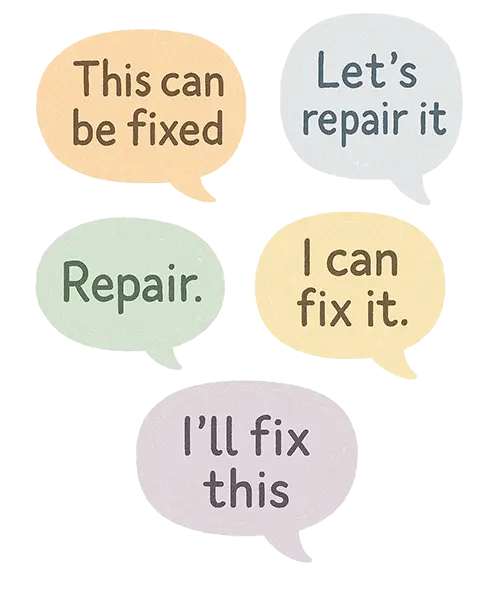
How to recover from oversharing the same day vs. later that week
Same day: Quick text or chat “Hey, sorry for the TMI, excited nerves!” Then self-soothe with a walk. Later week: If needed, casual bring-up “About last time, didn’t mean to dive deep so soon.” Per Forbes on vulnerability hangover recovery, time helps perspective. I recovered same-day once with humor turned it light.
🟨 Message templates box: text/DM/email versions
Tweak as needed keeps repair smooth.
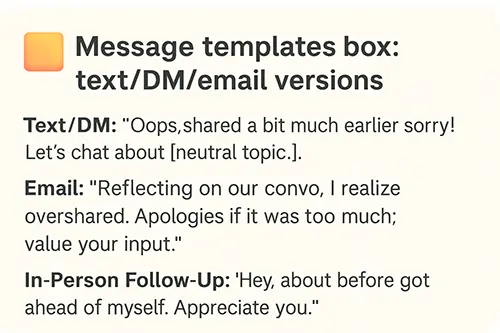
Case Studies & Scenarios
Let’s get real with some stories that hit close to home, ’cause nothing explains this oversharing mess like seeing it play out. I’ve pulled these from chats with friends and a bit of my own cringey history, mixed with what psych folks say about patterns.
Think of ’em as little windows into how anxiety sneaks in and turns a simple talk into a spill fest. For more on spotting those emotional triggers, check our take on why your emotions feel too much. And yeah, if you’re digging deeper, here’s a solid piece from Harley Therapy on oversharing syndrome. One quirky bit? We’ll wrap each with what clicked and what bombed, to keep it practical.
I remember this one guy I knew, total anxious type, who always jumped the gun in convos. These scenarios ain’t just hypotheticals; they’re like that time in college when a group project turned into my therapy dump. 😅
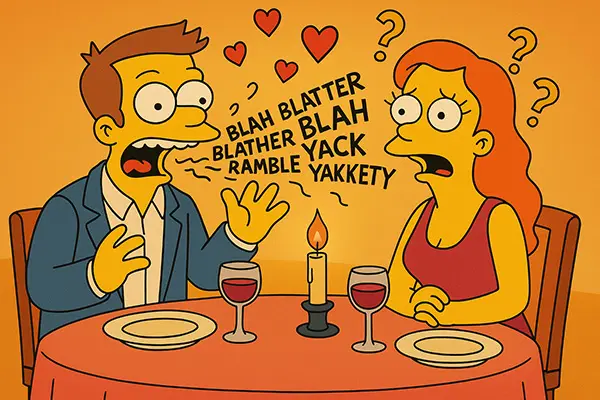
First-date overshare → pacing & repair
Picture this: you’re on a first date, vibes are okay, but nerves hit and suddenly you’re spilling about your ex’s betrayal or that therapy breakthrough last week. Happened to me once coffee turned into a two-hour monologue, and poof, no second date. The key here’s pacing: start light, like hobbies or funny stories, then layer in if they match. Repair? Shoot a quick text like “Hey, got a bit carried away earlier, sorry!” But only if it feels needed; sometimes letting it fade is better. From what I’ve read, fast intimacy like this spikes short-term connection but tanks stability long-run, per studies on relationship pacing.
For LGBT+ folks, this might amp up if you’re sharing identity stuff too soon, testing waters but risking judgment. I had a pal who overshared coming-out deets on date one felt raw after. Pace by asking questions back, build that mutual vibe.
Workplace meeting → clarity without personal spill
Ah, the classic: in a team huddle, boss asks for updates, and you dive into why you’re stressed family drama, sleep issues, the works. Colleague of mine did this, thought it was “honest,” but it shifted the room awkward. Clarity means sticking to facts: “Project’s delayed due to X,” no backstory dump. Without the personal spill, you keep pro boundaries. If anxiety pushes you, pause and filter what’s need-to-know? One time, I caught myself mid-sentence, switched to “Let’s focus on solutions,” and it saved the meeting.
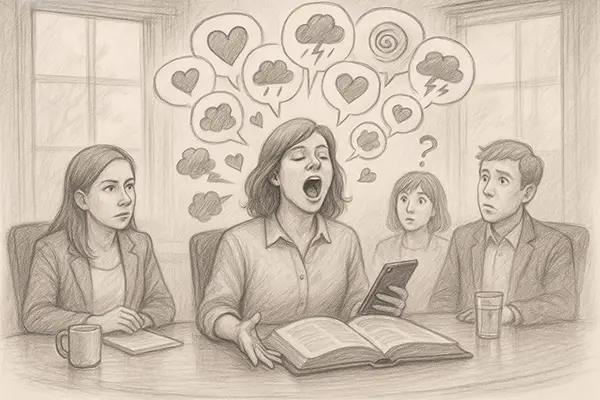
Group chat → when “honesty” becomes performance
Group texts or hangs where “honesty” turns into a show sharing deep fears to feel seen, but it’s really anxiety performing for approval. Buddy in my circle does this, drops heavy stuff like mental health struggles in a casual thread, then regrets the silence. It’s performance ’cause it’s not mutual; everyone’s scrolling, not engaging. Shift by reading the room if it’s memes, keep it light. “Honesty” here backfires into isolation, like that party where I “performed” my insecurities and folks pulled away.
🟨 Side-callouts: “What worked / What backfired”
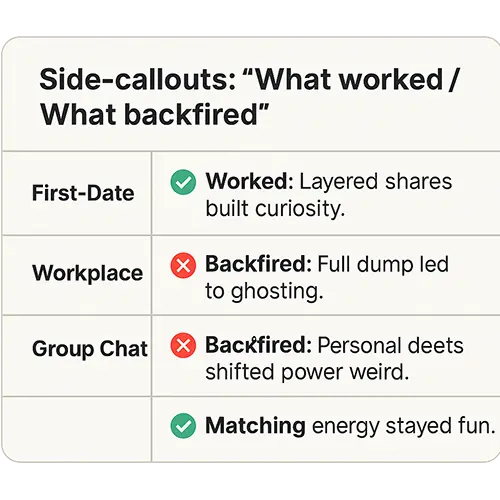
Checklists (Pre / During / Post Conversation)
Checklists are my jam for taming this simple, no fluff, like a quick brain reset. Pulled from therapy tips and trial-error, they help wire in better habits. For emotional boundaries overlap, see our mental self-care guide. They’re not rigid; tweak ’em. Oh, and a nudge from ADDitude on ADHD oversharing impulse control starts with prep.
Pre-chat, I jot intentions on my phone; during, breathe; post, journal. Keeps regret low. 😊
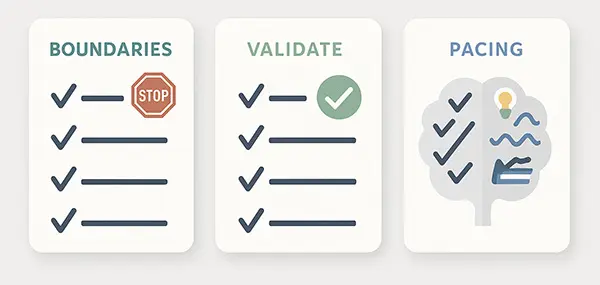
Pre: intention, boundaries, red-lines
Before jumping in, set your why: “Connect lightly, no deep dives.” Boundaries? Decide layers light topics only for new folks. Red-lines: No trauma talk or family secrets early. Quick scan: Am I anxious? Lonely? If yes, journal first. This preps your nervous system, cuts impulses.
During: pace, consent checks, silence tolerance
Mid-flow, pace by mirroring their depth if they share light, you do too. Consent checks: “Cool if I add this?” Silence tolerance: Count to five in pauses, let ’em talk. If urge hits, breathe deep. Helped me in a recent hang paused, and convo flowed natural.
Post: debrief, soothe, adjust scripts
After, debrief: What went well? Regret any shares? Soothe with a walk or tea, remind yourself “It’s okay, growth.” Adjust scripts for next: “Shorten explanations.” If hangover hits, name it shame cycle eases. From psych stats, post-rumination drops with this routine.
🟨 3 mini-checklists as icon cards
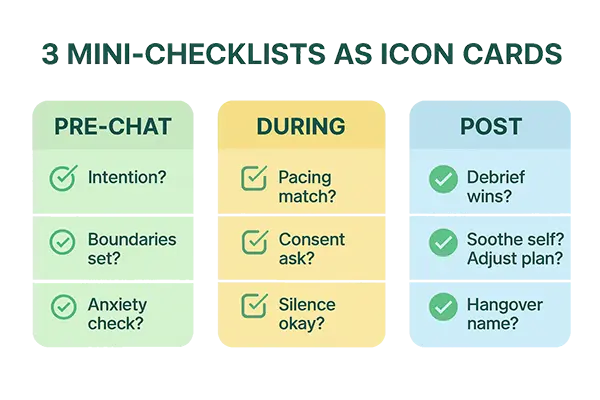
Red Flags & When to See a Professional
Sometimes oversharing’s more than a quirk it’s a flag waving for help. If it’s messing daily life, don’t ignore. I’ve seen friends brush it off, but it built up. For self-awareness ties, our knowing yourself piece. Red flags tie to deeper stuff like trauma or ADHD, per Grim & Virtue on trauma overshare wait, that’s similar.
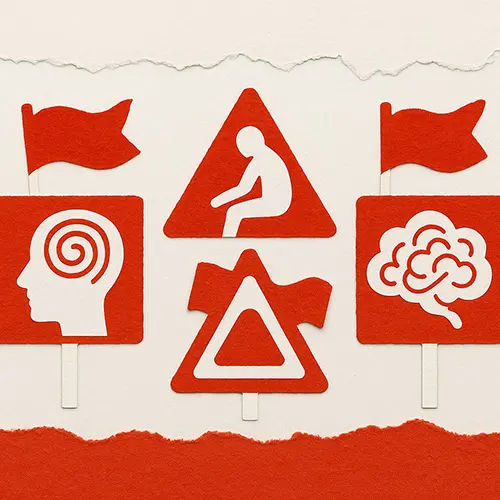
Compulsions, spirals, or regret that impair functioning
If you must share or regret cripples your day can’t focus, avoid people that’s compulsion territory. Spirals? Post-chat rumination looping for hours, shame building. Impairs work or bonds? Flag. One client story: Overshared daily, regret froze her socially.
Trauma activation & dissociation after disclosure
Post-share, if old wounds flare flashbacks, numbness that’s trauma activation. Dissociation? Feeling floaty, detached after spilling. Common in survivors, like “Why’d I say that?” but deeper freeze. For LGBT+, past rejection might trigger this hard.
Co-occurring ADHD/OCD/Social Anxiety indicators
ADHD: Impulsive blurts, no filter. OCD: Reassurance-seeking shares, then obsess. Social anxiety: Overshare to “fix” awkward, but spirals worse. Indicators? Patterns with these hyperfocus on convos or checking reactions. Stats show overlap, like ADHD boosting overshare risk.
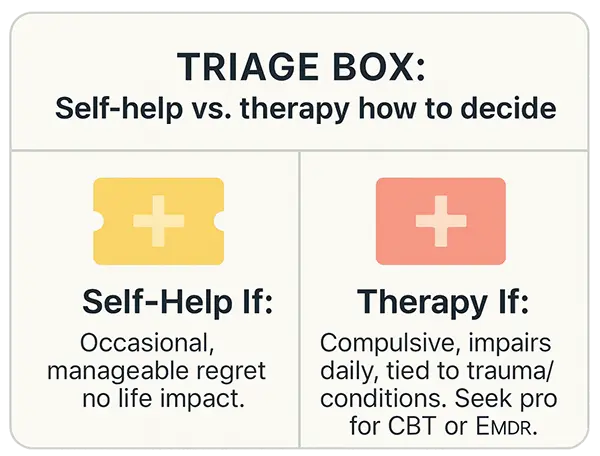
🟨 Triage box: “Self-help vs. therapy how to decide”
Self-Help If: Occasional, manageable regret no life impact. Try tools here.
Therapy If: Compulsive, impairs daily, tied to trauma/conditions. Seek pro for CBT or EMDR. Don’t wait if spirals worsen.
Research, Tests & Stats (Plain-English)
Breaking down the science without the jargon ’cause who wants a textbook? From brain bits to relationship stats, it’s eye-opening. Quick test? Rate your post-chat regret 1-10; over 7 often? Pattern alert. Links to Psychology Today on oversharing dangers.
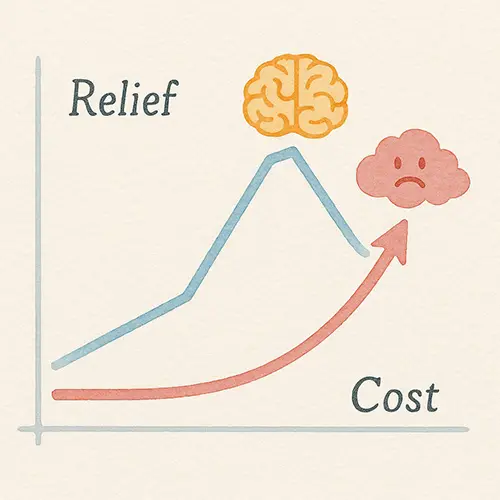
Anxiety relief mechanisms in disclosure (short vs. long term)
Short-term: Sharing dumps cortisol, feels like relief dopamine hit from “connection.” But long-term? Builds shame, amps anxiety cycle. Studies show oversharing ties to addiction-like patterns, anxiety predicting more shares. Neuro-wise, amygdala calms quick, but prefrontal replay loops shame.
Intimacy speed & relationship stability (why pacing matters)
Fast intimacy? Feels intense, but stats say slow-pacers last longer better trust, less burnout. One study: Couples pacing emotional shares had 30% higher satisfaction. Why? Allows real bonds, not adrenaline highs. Like marathons vs sprints.
Rumination & shame cycles post-interaction
Post-chat, rumination chews on “too much?” shame spikes, linked to depression. Stats: Social anxiety folks ruminate 2x more, shame fueling cycles. Breaks with mindfulness, but untreated? Impairs mood long-term.
🟨 Simple chart: short-term relief vs. long-term cost curve
| Time | Relief Level | Cost (Shame/Anxiety) |
|---|---|---|
| Immediate | High (dopamine spike) | Low |
| 1-2 Hours | Medium | Rising |
| Next Day | Low | High (rumination peak) |
| Long-Term | None | Chronic if repeated |
Curve shows quick high, steep drop pacing flattens it.
FAQs (PAT style: Problem → Agitate → Targeted Answer)
Why do I always overshare and then regret it?
Problem: You spill too much in chats, wake up cringing hard. Agitate: That regret loop drains energy, strains bonds, leaves you isolated feels endless. Targeted Answer: It’s anxiety chasing quick relief; break with pause practice and journaling urges. Start today: One-sentence rule in next convo. Long-term, therapy unpacks roots for lasting change.
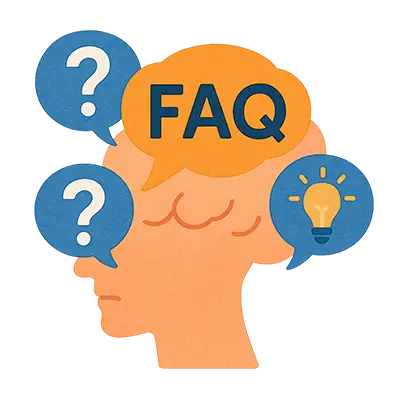
Problem: Words tumble out seeking likes or closeness.
Agitate: Backfires into shame, approval addiction worsens isolation.
Targeted Answer: Anxiety bids for safety, per psych models fast intimacy mimics bonds but skips trust. Layer shares gradually; ask “Purpose?” before spilling.
Problem: Shares feel compulsive, tied to past hurts or wiring.
Agitate: Ignores it amps cycles, affects health.
Targeted Answer: Often trauma (safety-seeking), ADHD (impulse), OCD (reassurance). Self-test: Urge from fear? Pro help if co-occurring CBT works wonders.
Problem: Not sure if it’s too much?
Agitate: Miss it, regret builds, bonds suffer.
Targeted Answer: Test: Regret after? Listener pulls back? Score yeses on checklist above. Filter deets with “Need now?”
Problem: Anxiety pushes spills now.
Agitate: Quick fixes fail, cycle repeats.
Targeted Answer: Today: Breathe, pause count. Long-term: Journal patterns, therapy rewires. Try urge surfing ride wave sans action.
Problem: Post-spill, wanna say sorry?
Agitate: Overdo it, feeds anxiety loop.
Targeted Answer: If burdened them, light “Oops.” Else, skip it’s seeking. Self-soothe instead.
Problem: Hangover hits hard.
Agitate: Ruminate, avoidance grows.
Targeted Answer: Debrief gently, walk it off. Scripts like “Got carried away” if needed. No over-apology.
Problem: Post-chat anxiety floods.
Agitate: Feels exposed, shame spirals.
Targeted Answer: It’s rebound from share risk brain’s fear response. Cope: Name it, self-compassion. Builds resilience over time.
Sources & Helpful Links
Wrapping with goodies plain reads and ties to our stuff. These helped me unpack my patterns; hope they do for you.
Try a checklist today, share wins in comments. For more peace, subscribe. 😌
Plain-language resources on boundaries, pacing, and anxiety tools
- BetterUp on oversharing signs easy tips.
- Science of People on stopping overshare practical.
- PositivePsychology on urge surfing anxiety hack.
Dive deeper: Emotional boundaries basics. Or Mindful journaling for healing. Plus Self-awareness growth.
Save These:
- Boundaries Guide
- Pacing Tips
- Anxiety Tools
Share with a pal who needs it! 🚀

Quick Boundaries Quiz to Check Yourself
Not sure if your boundaries are helping or hurting?
Take the quick quiz to see where you stand
Just in 3 Min
Part of the Emotional Boundaries series
✨ Last updated on 29.08.2025
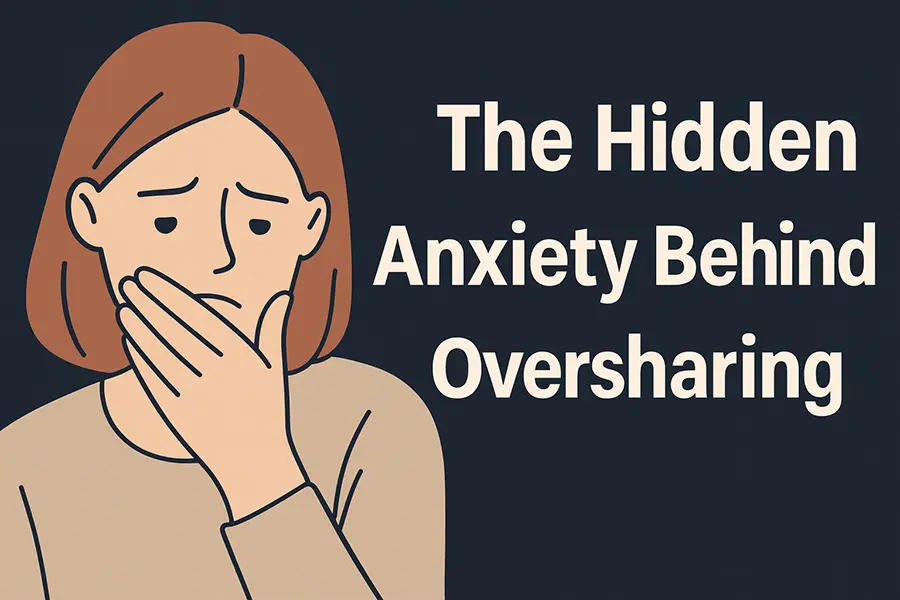

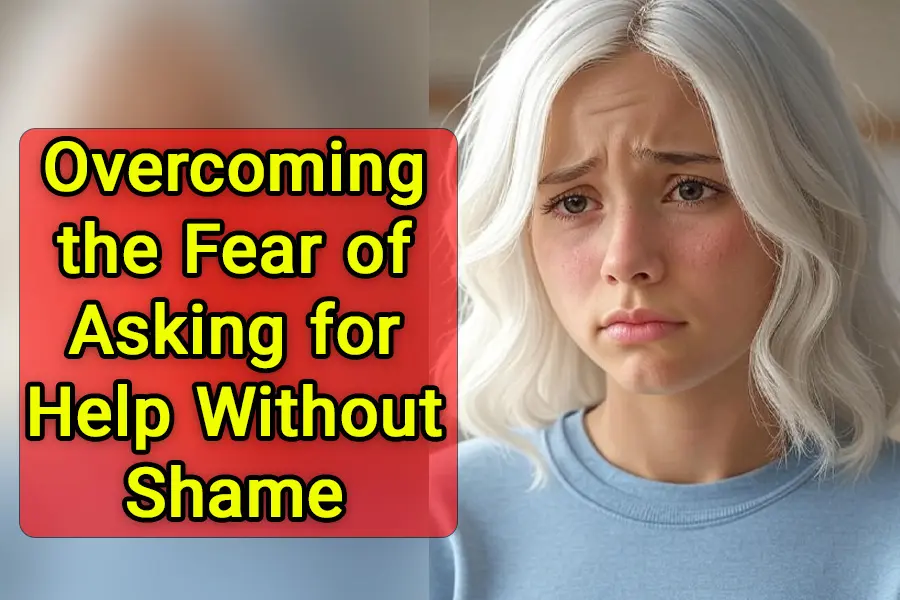
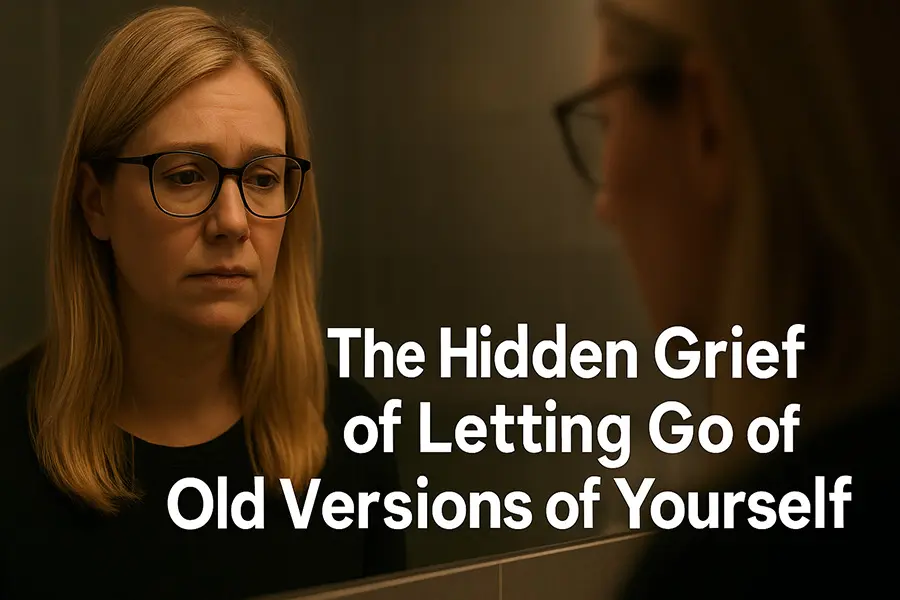
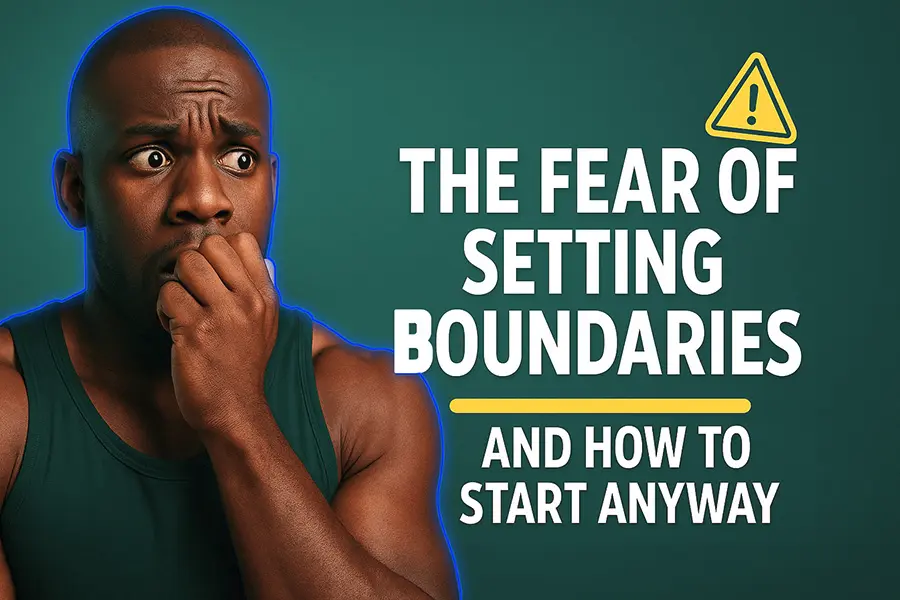
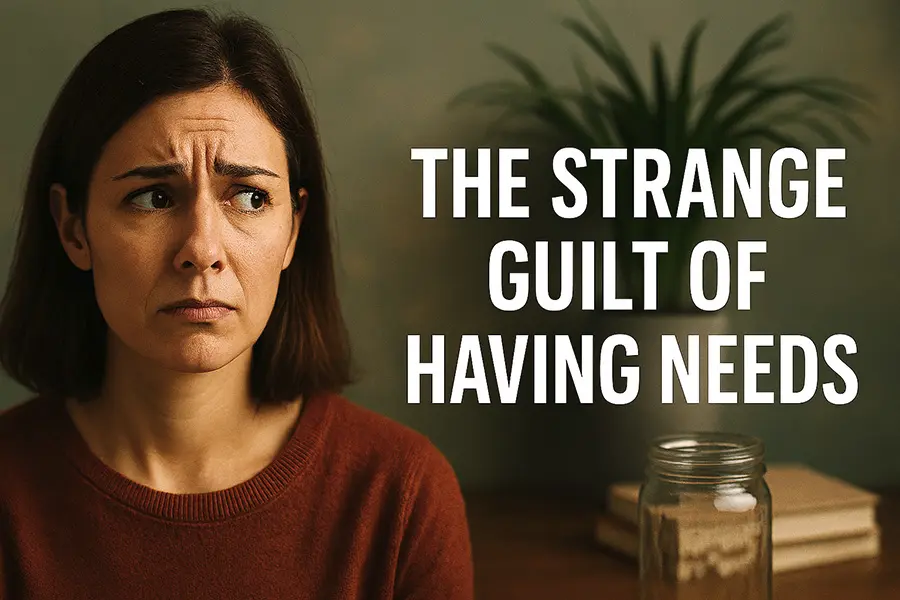
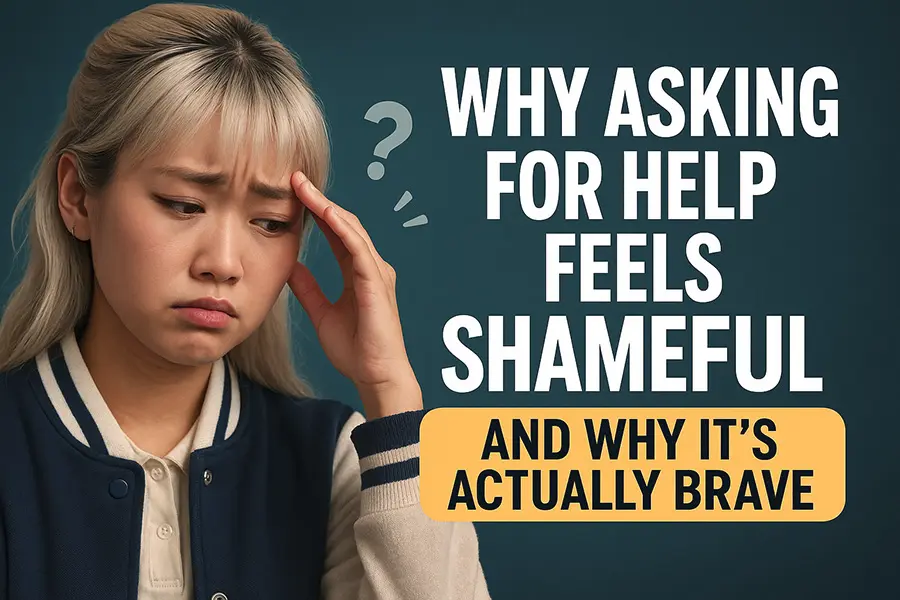
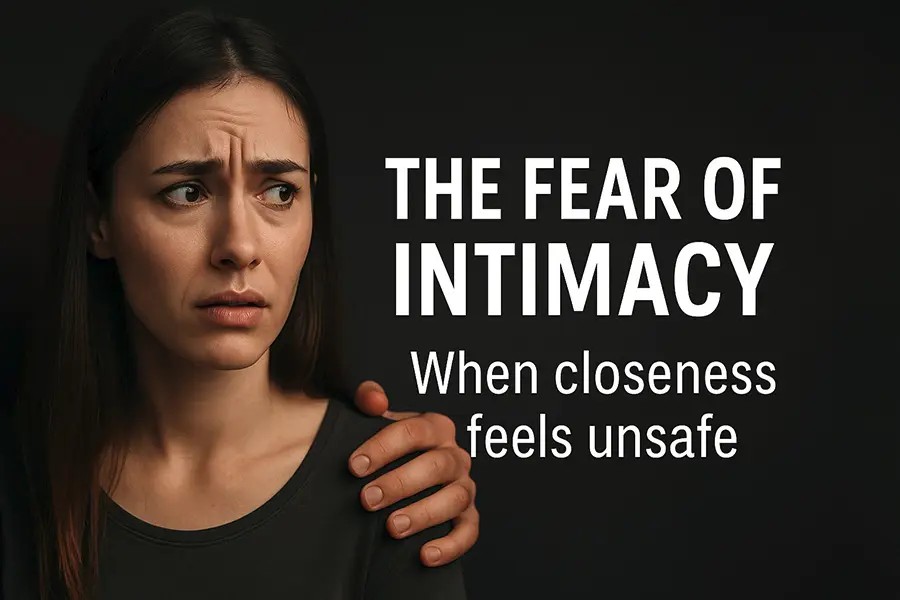
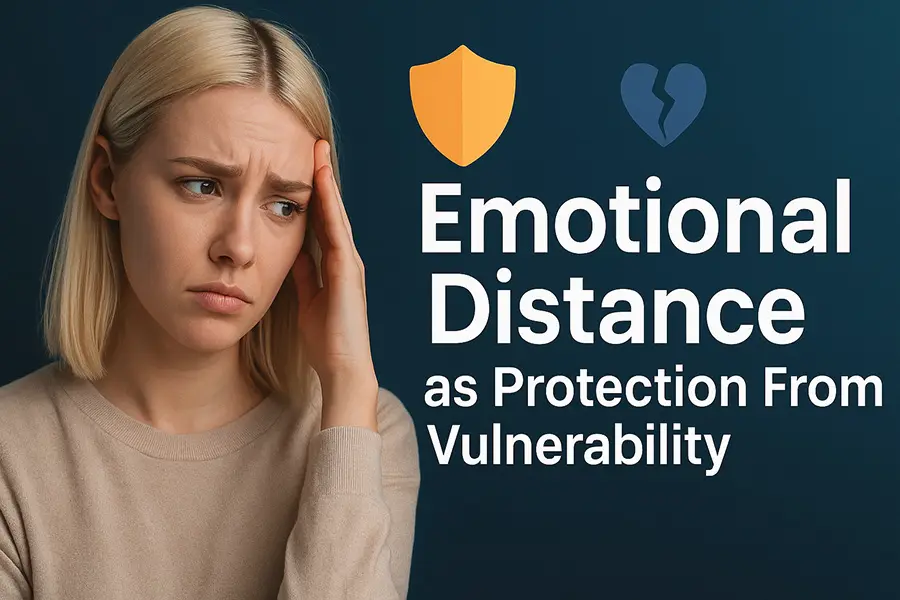
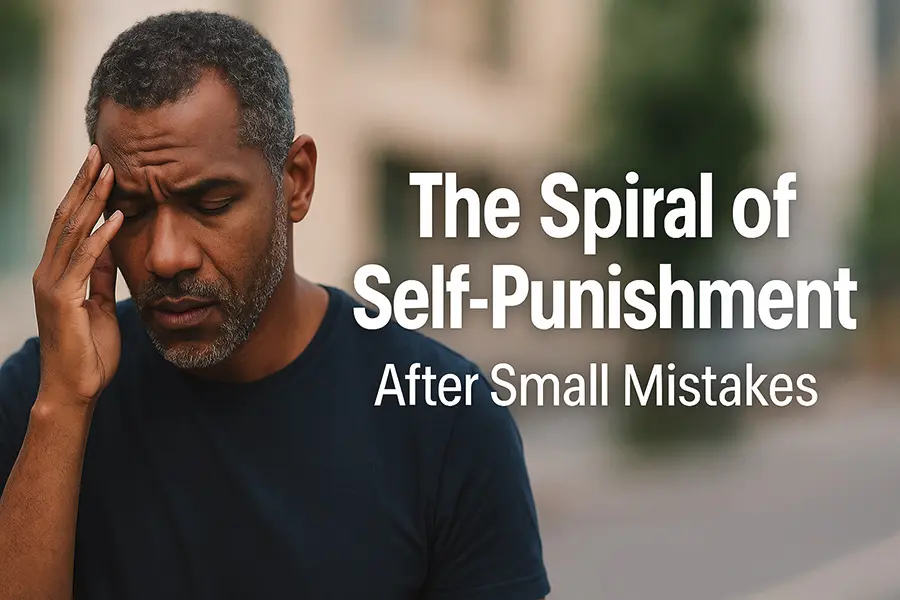










Leave a Reply